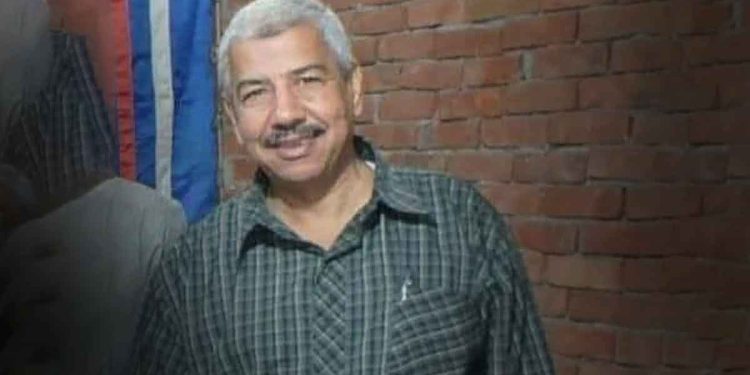The 64-year-old political prisoner Ibrahim Khaled Mohamed passed away in his cell at Wadi El Natrun prison ten days ago following a stroke, amid the growing number of violations occurring within Egyptian prisons.
Detainee Ibrahim’s condition deteriorated and he died as a result of not being moved to an outside hospital to receive the required treatment despite his critical health condition.
Ibrahim Khaled Mohamed, an accountant from the Ismailia Governorate’s city of Abu Suwayr, was detained by Egyptian authorities in 2014 in connection with the “Ismailia Courts Complex Case,” as it was reported in the media.
He continued to be held in conditions deemed inhumane, without the bare minimum of essential medical care, despite his worsening health situation.
The death of Ibrahim Khaled is the fourth instance of a political prisoner in Egyptian jails in December alone, which calls into question the conditions inside detention facilities where thousands of criminal and political prisoners endure subpar medical treatment and worsening conditions.
In egregious violation of international law and ethical norms, the Egyptian authorities failed to provide detainees with the medical care they needed, as evidenced by his death from the harsh circumstances surrounding him and the wilful medical negligence.
Human rights and international organisations must continue to put pressure on the Egyptian government to take full responsibility for protecting prisoners and detainees, giving them proper medical care while incarcerated, looking into death incidents, prosecuting those involved, and making sure that similar incidents do not happen again.
Notably, basic health necessities such as adequate food, hygienic facilities, and bathrooms that are suitable for the number of inmates, as well as lighting, ventilation, and exercise, are typically absent from Egyptian prisons. Most of them also suffer from severe overcrowding of prisoners inside detention facilities.






























